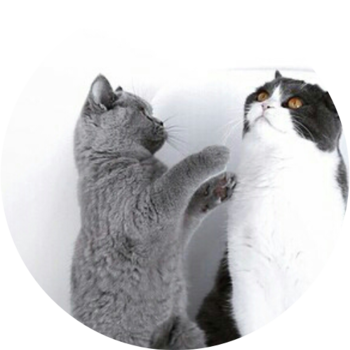Assuming that this question is asking about why #Cl_2# doesn't become the chlorine radical, #Cl^.#, under normal circumstances:
Chlorine is one of the diatomic elements—elements that, essentially, only exist in nature in as a diatomic molecule.
Other diatomic elements are #Br_2#, #I_2#, #N_2#, #H_2#, #O_2#, and #F_2#.
This is because the #Cl_2# molecule is much more stable and much less reactive than the #Cl^.# atom.
In a regular atom of #Cl^.#, there are #7# valence electrons.
![Wikimedia Commons]()
It needs just #1# more valence electron to achieve noble gas configuration (#8# electrons, in this case), so it is reactive, because it wants to gain that #1# electron.
In the #Cl_2# molecule, both of the chlorine atoms have noble gas configuration:
![Byju's]()
So, chlorine is much more stable as #Cl_2#, compared to #Cl^.#, because #Cl^.# wants to gain #1# more electron to achieve noble gas configuration—which #Cl_2# already has.

